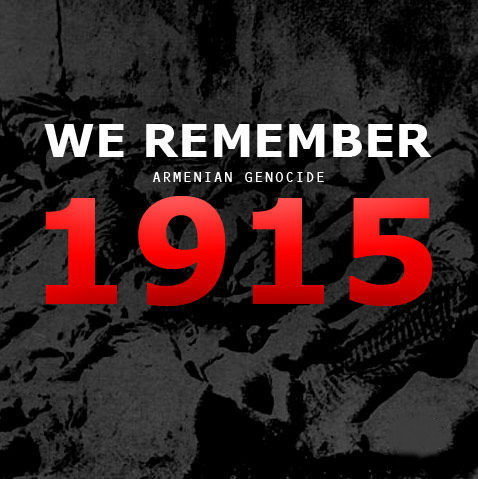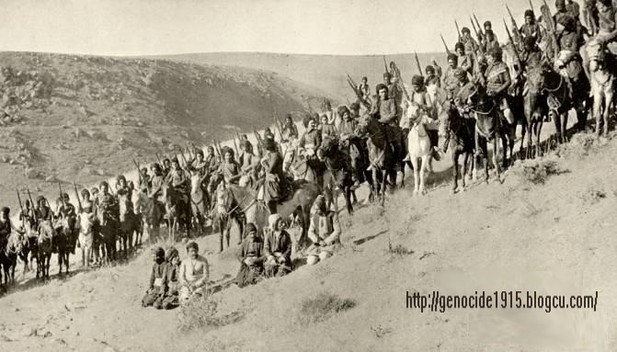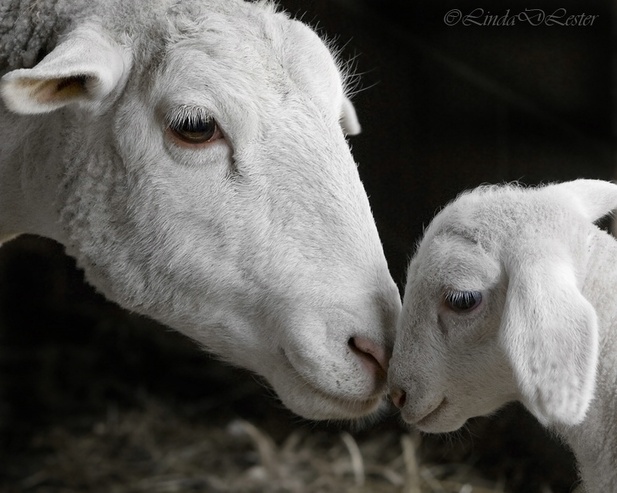Без заголовка










Կեսգիշերին մի oր, երբ ես մենակ նստած, հոգնած այսպես
Խորհում էի, թերթում պեսպես պատմություններ, գրքեր հին հին,
Երբ մրափն էր աչքս կոխում, լսվեց հանկարծ մի խուլ թախում,
Մեկը կարծես դուռս էր բախում, հեզիկ բախում մութի միջին.
«Այցելու է, մրմնջացի, դուռս է ծեծում մութի միջին,
Այցելու է, ուրիշ ոչինչ»:
Պարզ հիշում եմ, կես գիշեր էր, ցուրտ ու մռայլ դեկտեմբեր էր,
Եվ մոխրացող ամեն կրակ շուք էր գցել հատակիս խոր.
Անձկում էի լուսաբացին և զուր նստած գրքերում ցիր
Խեղդել էի փորձում անծիր տխրությունս առ իմ Լենոր,
Անգին ու վառ այն աղջկան, աղջկան այն արևավոր,
Դարձած անhուշ ու հեռավոր:
Եվ ամեն մի նուրբ ու խորին խըշխըշոցը վարագույրի
Համակեց ինձ դեռ չզգացած, կյանքում չեղած սարսափներով,
Եվ որպիսի ահըս վանեմ և սարսափն այդ սրտես հանեմ,
Ես կրկնեցի կանգնած վախով. «Այցելու է մտնում բախով,
Մի ուշացած ճամփորդ գուցե, տեղ է խնդրում որ քիչ հանգչի,
Այցելու է, ուրիշ ոչինչ»։
Եվ սրտապինդ ու անվարան մոտեցա ես այսպես դռան՝
«Պարոն, ասի, կամ թե տիկին, ներեցեք ինձ՝ չլսեցի,
Փաստ է, որ ես մրափեցի, իսկ դուք այնպես մեղմ բախեցիք,
Իսկ դուք այնպես հեզ բախեցիք, մթության մեջ խարխափեցիք,
Որ ես հազիվ ձեզ լսեցի»: Այստեղ դուռն իմ ես լայն բացի՝
Խավար էր լոկ դեմս անծիր:
Դեպի մութն այդ սարսափահար նայեցի ես կանգնած երկար,
Ու երազներ տեսա բազում երկրի մարդուն անմատչելի,
Լռություն էր սակայն անծայր և խավար էր սակայն անձայն,
Ու մթնում այդ միայն մի ձայն, մի անուն էր լսվում՝ Լենոր,
Այդ բառը ես շշնջացի, արձագանքեց մութի միջին,
Այդ բառն էր լոկ, ուրիշ ոչինչ:
Սենյակս էի երբ ես դառնում և հոգիս էր իմ մեջ վառվում,
Լսեցի ես դարձյալ մի զարկ, առաջվանից ուժգին փոքր ինչ.
«Անշուշտ բան կա, բան կա, գիտեմ, պատուհանիս վանդակի դեմ,
Թող երևա, գա դեմ առ դեմ, տեսնենք հապա ո՞վ է, կամ ինչ,
Սիրտս խաղաղ լինի թող քիչ, թող փարատվի գաղտնիքն այս ռինջ»:
Քամին էր, լոկ, ուրիշ ոչինչ։
Պատուհանիս փեղկն երբ բացի, շուրջս թևեր թպրտացին,
Ու ներս տոտեց մի վես ագռավ, հպարտ ագռավ հին օրերից,
Նա ոչ հակեց, ոչ կռացավ, ոչ խոնարհվեց, ոչ ետ դարձավ,
Այլ վեհաքայլ առաջացավ, թռավ բարձր խցիս լանջին,
Միներվայի անդրուն թառեց, հենց դեմուդեմ իմ առաջին,
Ու լուռ նստեց, ուրիշ ոչինչ։
Տեսնելով այդ սևահավին, ես ժպտացի սրտիս ցավից,
Ցնցված նրա խոժոռ տեսքից, կերպարանքից ահեղատես.
«Ծեր ես թեպետ և ճաղատ ես, բայց դու ասի, վատասիրտ չես,
Ժանտատեսիլ ու սոսկատես հին ու թափառ ագռավի պես,
Ասա, այնտեղ մութ գիշերում ի՞նչ տիրական անուն ունես.
Ագռավն ասաց. «երբեք այլևս»:
…Բայց ագռավն այդ անդրուն թառած լոկ այդ բառն էր բերանն առած,
Կարծես իր այդ մեն մի բառով դուրս էր հորդում հոգին իր կեզ,
Ոչինչ էլ նա չասեց այլևս, փետուր անգամ չշարժեց հեզ,
Շշնջացի մինչ ես այսպես՝ ընկերներն իր չվեցին, տես,
Լուսաբացին նա էլ կերթա վաղ գնացած հույսերիս պես.
Ագռավն ասաց. «երբեք այլևս»:
Դողահար այդ շտապ ձայնից, Ագռավի սուր պատասխանից,
— Անշուշտ ասի, ինչ ասում է՝ դա լոկ բառ է պատրաստ պահած,
Քաղած տխուր մի վարպետից, մի տանջահար երգչապետից,
Որի երգը սերտել պիտի միշտ կրկնելով արագ այդպես.
Մինչև հասնի երգն իր հույսի մահերգի մութ ու տխրակեզ
Բառին՝ «երբեք, երբեք այլևս»։
Բայց ագռավն այդ հոգիս մաղձոտ լցրեց ժպտով հուրհրացող,
Ուստի վերցրի մի բազկաթոռ ու դեմուդեմ նստեցի ես,
Եվ ընկղմված թավշում փափուկ սկսեցի լուռ մտաբորբոք
Եվ միտք առ միտք խորհել՝ արդյոք ի՞նչ է ուզում ասել սև-տես
Ժանտատեսիլ ու ահավոր չարագուշակ թռչունն այդ վես
Կռինչովն իր «երբեք այլևս»:
Նստեցի ես մտալարված, լուռ այդ մտքով միայն տարված,
Եվ հայացքը նրա վառված կուրծքս էր լափում կրակի պես,
Մառ տխրությամբ ահաբեկված, իմ գլուխը ծնկիս կքած
Դեպի կապույտ բարձն իմ թեքած, սկսեցի ես խորհել այսպես.
«Մենակ եմ ես այս թավիշին. ում սիրեցի ես խենթի պես,
Չի հանգչելու ինձ հետ այլևս»:
— Գուշակ,- ասի,- չարաշրջուն, փորձի՞չ ես դու, դև՞ թե թռչուն,
Մեզ աղեղող երկնից եկած, աստծուց եկած պաշտելի մեզ,
Հոգիս վշտոտ ու մեղսական եդեմում այն դրախտական
Կհանդիպի՞ այն աղջկան, շողուն ու սուրբ ու լուսահեզ,
Անգին ու վառ այն աղջկան, Լենորին իմ արևատես,
Ագրավն ասաց. «երբեք այլևս»:
— Հավք,- գոչեցի,- բառն այդ դաժան թող նիշ լինի մեր բաժանման
Իսկ դու հիմա հողմիդ դարձիր ու գիշերիդ խավարատես,
Եվ քո ստին որպես հիշակ փետուր մի թող իմ հարկիս տակ,
Մենությունս թող անխորտակ, թող այս անդրին, քշում եմ քեզ,
Հան կտուցդ սրտիս միջից, առ պատկերդ չքվիր աչքես.
Ագռավն ասաց. «Երբեք այլևս»:
Եվ ագռավն այդ հսկա, անթեռ, նստած է դեռ, նստած է դեռ
Միներվայի գունատ անդրուն, հենց իմ դիմաց, չար ոգու պես,
Եվ աչքերն իր ահաբեկող՝ դևի լինեն կարծես նիրհող:
Իսկ լապտերը վերից վառվող՝ շպրտել է շուքն հատակիս,
O՜ իմ հոգին տարուբերվող շուքի տակից այդ ահատես
Չի բարձրանա երբեք այլևս:

Once upon a midnight dreary, while I pondered, weak and weary,
Over many a quaint and curious volume of forgotten lore,
While I nodded, nearly napping, suddenly there came a tapping,
As of some one gently rapping, rapping at my chamber door.
"'Tis some visitor," I muttered, «tapping at my chamber door--
Only this, and nothing more.»
Ah, distinctly I remember it was in the bleak December,
And each separate dying ember wrought its ghost upon the floor.
Eagerly I wished the morrow;--vainly I had sought to borrow
From my books surcease of sorrow--sorrow for the lost Lenore--
For the rare and radiant maiden whom the angels name Lenore--
Nameless here for evermore.
And the silken sad uncertain rustling of each purple curtain
Thrilled me--filled me with fantastic terrors never felt before;
So that now, to still the beating of my heart, I stood repeating,
"'Tis some visitor entreating entrance at my chamber door--
Some late visitor entreating entrance at my chamber door;--
This it is, and nothing more."
Presently my soul grew stronger; hesitating then no longer,
«Sir,» said I, «or Madam, truly your forgiveness I implore;
But the fact is I was napping, and so gently you came rapping,
And so faintly you came tapping, tapping at my chamber door,
That I scarce was sure I heard you»--here I opened wide the door;--
Darkness there, and nothing more.
Deep into that darkness peering, long I stood there wondering, fearing,
Doubting, dreaming dreams no mortals ever dared to dream before;
But the silence was unbroken, and the stillness gave no token,
And the only word there spoken was the whispered word, «Lenore!»
This I whispered, and an echo murmured back the word, «Lenore!»--
Merely this, and nothing more.
Back into the chamber turning, all my soul within me burning,
Soon again I heard a tapping somewhat louder than before.
«Surely,» said I, «surely that is something at my window lattice:
Let me see, then, what thereat is, and this mystery explore--
Let my heart be still a moment and this mystery explore;--
'Tis the wind and nothing more.»
Open here I flung the shutter, when, with many a flirt and flutter,
In there stepped a stately raven of the saintly days of yore;
Not the least obeisance made he; not a minute stopped or stayed he;
But, with mien of lord or lady, perched above my chamber door--
Perched upon a bust of Pallas just above my chamber door--
Perched, and sat, and nothing more.
Then this ebony bird beguiling my sad fancy into smiling,
By the grave and stern decorum of the countenance it wore.
«Though thy crest be shorn and shaven, thou,» I said, «art sure no craven,
Ghastly grim and ancient raven wandering from the Nightly shore--
Tell me what thy lordly name is on the Night's Plutonian shore!»
Quoth the Raven, «Nevermore.»
Much I marvelled this ungainly fowl to hear discourse so plainly,
Though its answer little meaning--little relevancy bore;
For we cannot help agreeing that no living human being
Ever yet was blest with seeing bird above his chamber door--
Bird or beast upon the sculptured bust above his chamber door,
With such name as «Nevermore.»
But the raven, sitting lonely on the placid bust, spoke only
That one word, as if his soul in that one word he did outpour.
Nothing further then he uttered--not a feather then he fluttered--
Till I scarcely more than muttered, «other friends have flown before--
On the morrow he will leave me, as my hopes have flown before.»
Then the bird said, «Nevermore.»
Startled at the stillness broken by reply so aptly spoken,
«Doubtless,» said I, «what it utters is its only stock and store,
Caught from some unhappy master whom unmerciful Disaster
Followed fast and followed faster till his songs one burden bore--
Till the dirges of his Hope that melancholy burden bore
Of 'Never--nevermore'.»
But the Raven still beguiling all my fancy into smiling,
Straight I wheeled a cushioned seat in front of bird, and bust, and door;
Then upon the velvet sinking, I betook myself to linking
Fancy unto fancy, thinking what this ominous bird of yore--
What this grim, ungainly, ghastly, gaunt and ominous bird of yore
Meant in croaking «Nevermore.»
This I sat engaged in guessing, but no syllable expressing
To the fowl whose fiery eyes now burned into my bosom's core;
This and more I sat divining, with my head at ease reclining
On the cushion's velvet lining that the lamplight gloated o'er,
But whose velvet violet lining with the lamplight gloating o'er,
She shall press, ah, nevermore!
Then methought the air grew denser, perfumed from an unseen censer
Swung by Seraphim whose footfalls tinkled on the tufted floor.
«Wretch,» I cried, «thy God hath lent thee,--by these angels he hath sent thee
Respite,--respite and nepenthe, from thy memories of Lenore!
Quaff, oh quaff this kind nepenthe and forget this lost Lenore!»
Quoth the Raven, «Nevermore.»
«Prophet!» said I, «thing of evil!--prophet still, if bird or devil!--
Whether Tempter sent, or whether tempest tossed thee here ashore,
Desolate yet all undaunted, on this desert land enchanted--
On this home by horror haunted--tell me truly, I implore--
Is there--is there balm in Gilead?--tell me--tell me, I implore!»
Quoth the Raven, «Nevermore.»
«Prophet!» said I, «thing of evil--prophet still, if bird or devil!
By that Heaven that bends above us--by that God we both adore--
Tell this soul with sorrow laden if, within the distant Aidenn,
It shall clasp a sainted maiden whom the angels name Lenore--
Clasp a rare and radiant maiden whom the angels name Lenore.»
Quoth the Raven, «Nevermore.»
«Be that word our sign in parting, bird or fiend,» I shrieked upstarting--
«Get thee back into the tempest and the Night's Plutonian shore!
Leave no black plume as a token of that lie thy soul hath spoken!
Leave my loneliness unbroken!--quit the bust above my door!
Take thy beak from out my heart, and take thy form from off my door!»
Quoth the Raven, «Nevermore.»
And the Raven, never flitting, still is sitting, still is sitting
On the pallid bust of Pallas just above my chamber door;
And his eyes have all the seeming of a demon's that is dreaming,
And the lamplight o'er him streaming throws his shadow on the floor;
And my soul from out that shadow that lies floating on the floor
Shall be lifted--nevermore!











